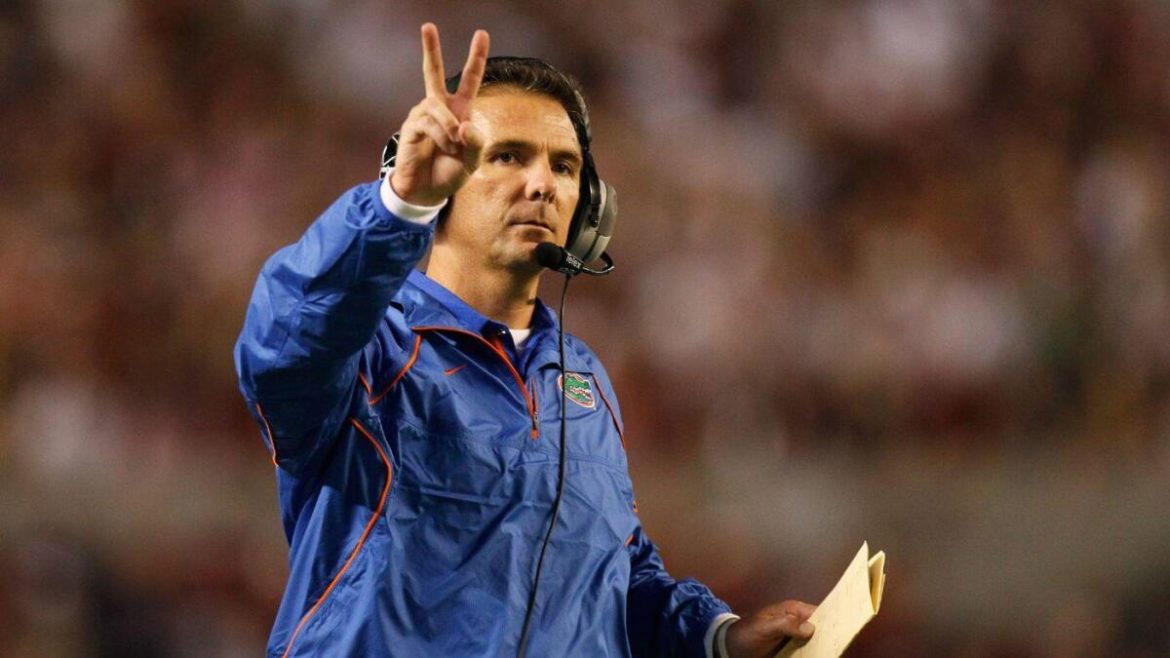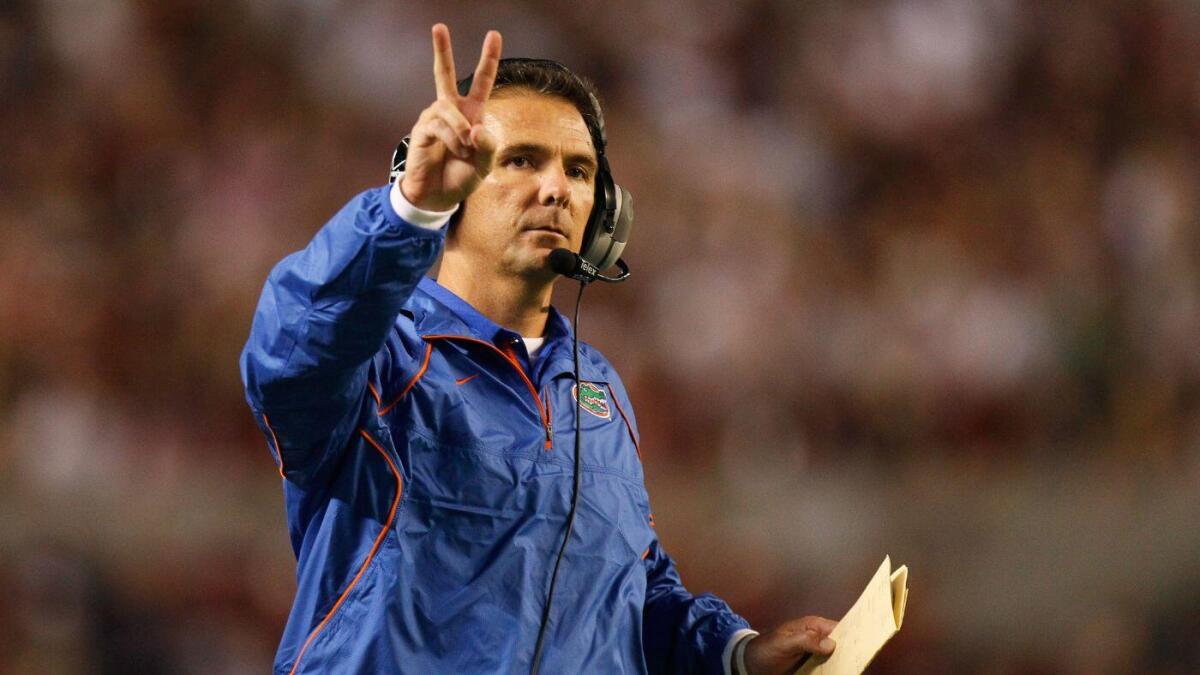Urban Meyer’s tenure with the Florida Gators stands as one of the most impactful and complex chapters in college football history. His departure in 2010, marked by personal health struggles and emotional turmoil, has been described by Meyer himself as “heartbreaking.” An exploration of his time at Florida reveals a narrative woven from extraordinary athletic success, profound personal challenges, intricate team dynamics, and a legacy that continues to spark debate within the Gator community and beyond.
The Highs of a Storied Coaching Career
Urban Meyer’s coaching run at Florida was extraordinary by any measure. Between 2005 and 2010, he led the Gators to a 65-15 record and secured two national championships—a stunning accomplishment that revitalized a football program seeking to reclaim its elite status. His approach combined relentless competitiveness with an eye for adapting players and staff to maximize performance. Notably, Meyer fostered the rise of quarterback Tim Tebow, whose leadership on and off the field became emblematic of the Gators’ success.
The strategic acumen Meyer displayed placed Florida atop college football’s ranks and constructed a legacy that brought pride & enthusiasm to the Gator Nation. The trophy case University of Florida boasts today is inseparable from Meyer’s influence and innovations in coaching, training regimens, and game-day tactics.
Emotional and Health Challenges Leading to Departure
Despite his triumphs, Meyer’s tenure was shadowed by significant health concerns that ultimately forced him to step away. By 2010, the stress of football coaching manifested in substantial physical decline, including a weight loss of around 25 pounds and chronic chest pains that persisted for years. The emotional toll was equally severe; Meyer has openly reflected on how difficult it was to leave a program to which he had dedicated his heart and soul. This departure was not born of a waning desire to coach but rooted firmly in an imperative to safeguard his well-being.
Meyer admitted to at times hiding the severity of his health issues, which underscores the pressures coaches face to appear invincible. His decision to prioritize health over career at such a critical juncture showed vulnerability uncommon in the competitive sports world, earning both empathy and criticism.
Legacy and Controversy: A Dual-Edged Sword
Urban Meyer’s legacy at Florida is a study in contrasts. On one hand, he left behind celebrated traditions, a strong winning culture, and a Bowl Championship Series trophy haul that many coaches would envy. On the other, his exit stirred hurt feelings among players and created fissures that rippled through the program in the ensuing years.
Critics, including former players like Channing Crowder, have questioned elements of Meyer’s leadership and health crises, suggesting that the pressure-cooker environment he cultivated might have contributed to the program’s later struggles. After Meyer’s resignation, the Gators’ subsequent seasons saw a marked decline, including losing records and coaching instability. Many observers link these downturns partially to the void left by Meyer’s sudden departure and to unsettled locker-room chemistry.
Moreover, Meyer’s coaching methods, described as “brutal” or “maniacal” by some sources, blended tough love with high demands. This approach generated both near-mythical success and lasting debate over the human costs. His style is examined in outlets such as Netflix’s “Untold: Swamp Kings,” which chronicles both his team’s heyday and the darker aspects of his regime.
Reflections and Enduring Connections
In recent years, Meyer has openly reflected on his time at Florida with a mix of pride and regret. Admitting that his exit was “heartbreaking” signals an ongoing emotional attachment to the program and its supporters. Despite resigning, Meyer has retained a bond with the Gator community, often expressing his ongoing support and appreciation for the fans and players.
His acknowledgment of the difficulty in leaving and the impact on his legacy suggests a man wrestling with the intersection of personal health, coaching passion, and the consequences of leadership choices. His willingness to discuss mental health challenges post-Florida also highlights a shift toward greater transparency in the high-pressure world of college sports coaching.
Conclusion: A Complex Portrait of Success and Struggle
Urban Meyer’s chapter with the Florida Gators is far from a simple story of glory. It is a nuanced portrait of a coach who reached the pinnacle of college football success while battling profound personal health challenges. His departure was a poignant turning point not just for the program but for Meyer himself, who has since grappled with the emotional aftermath and the ongoing effects of his coaching journey.
Meyer’s legacy remains a source of pride and contention, symbolizing both the heights of achievement possible with relentless will and the significant costs exacted by such ambition. The Florida Gators’ rise under his leadership is undeniable, but so too is the human story behind the scoreboard—one that continues to resonate as a lesson in the interplay between professional triumph, personal health, and the enduring impact of leadership.





